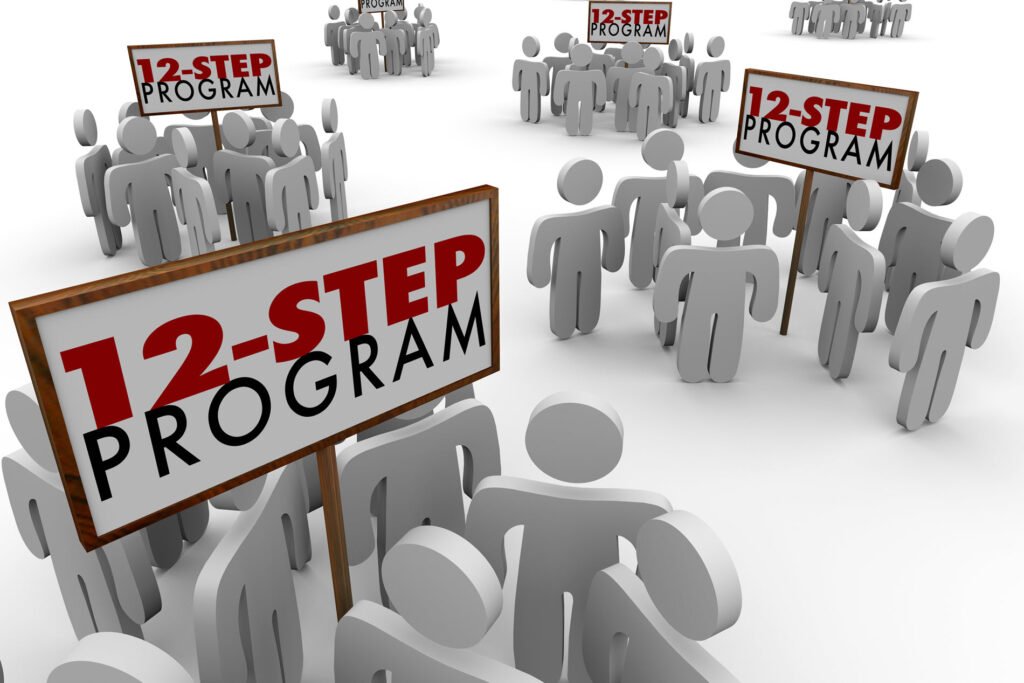RecoveryThe process by which addicts attempt to break the hold a certain substance or behavior has on their lives. This can refer to participation in a wide variety of methods. What they all have in common, is a sense that life is improving and the addict is regaining control. More is hard. There are many pitfalls and days when we feel weak and unable to handle it all. The good news is you are not on your own.
If you are part of a 12-step programA 12 step program includes 12 steps of recovery to help those struggling with substance addictions or behavioral addictions. The 12 steps are also used in programs dedicated to helping loved ones of addicts. 12 step programs include 12 step meetings where members go to share their experience strengt... More, you have a support network to catch you when you fall. One of the great things about a 12-step program is that by helping others, you also make the most of it for yourself.
Here are some tips for making the most of your recovery in a 12-step program, and enjoying yourself in the process!
Get a Home Group
12-step programs are based on a belief in the power of being part of something bigger than us. Humans are social animals and we do not fare well alone. Our recovery and our lives in general, are greatly served by being part of a group that offers mutual support.
In order to succeed in a 12-step programs it is important to regularly attend meetings. But it is best to mostly attend the same group and build bonds with the other members.
Therefore, it is best to find a group that meets two criteria: they are located conveniently to help you attend meetings regularly. Just as importantly, you should feel comfortable with the people in that group. Once you have found that place where you belong, cherish it and hold on to it.
Find a Sponsor
When you are attending meetings, you will want to find a temporary sponsor in that group. Their role is to be there for support, to talk to you when you need reassurance or just to hear a friendly and understanding voice.
A sponsor should be well ahead of you in the programThis refers to any official course of treatment for addiction. This could be anything from in-patient facilities, to 12-step programs to harm-reduction programs. More. Ideally, your sponsor will be an individual who has achieved the kind of stability in life that you want for yourself. A good sponsor is also available. It should be someone you know will get back to you in a reasonable amount of time, if you are in a tough spot.
Reach Out if you’re Feeling Squirrely
Most groups will hand their newcomers a list of phone numbers of other numbers willing to talk and help. That is a great resource. Use it!
Stay in Middle of the Herd
12- step programs are a community and are there to help and protect each other. Some have likened the social protection offered by the group to that of a herd of animals in the wild. Animals that are vulnerable to predators often travel in large packs.
Predators try to pick of their prey one by one, so the most vulnerable members of the pack are those at the front and especially stragglers at the back. Therefore, animals traveling in packs will instinctively place their young and sick members in the middle of the herd, where the rest can protect them.
The same principle applies for 12-step programs. You are safest when surrounded by other members, especially those veterans with experience in recovery. Do not run ahead of them in your recovery or straggle behind! Follow a steady pace in step with your group. Stay safe and keep others safe too!
Get Commitments
- Reach out to newcomers
- Share in meetings
- ‘Fellowship’ after meetings
My Personal Story & How These Tips Helped Me

I wanted to share my personal story on how I managed to put together 10+ years of recovery. After roughly 7 years on going through the revolving door of going to meetings, leaving meetings, putting together some time and then relapsing, a few of the things that helped me finally stay are he tips mentioned above.
I finally reached a point where I was sick & tired of being sick & tired so I reached out and was immediately sent to a 30-day rehabRehabilitation from addiction to a substance or harmful behavior. The term is often used to refer to in-patient facilities. Rehab usually consists of an intensive course of behavior modification which may include therapy, medication, and oversight. More in Pennsylvania. Once I returned back home, I went to a meeting the first day and continued with daily meetings for years.
Getting a home groupThe group you attend most often and in which you get to know the other members well. The group may be chosen because of its convenience, or because of an affinity with the people involved or their approach. It is recommended that every member of a 12-step fellowship have one, even if they regularly ... More was extremely important because it meant I was seeing a lot of the same people every day/week. A lot comes along with that including accountability, new soberIn 12-step programs, an individual is sober when they are no longer partaking in the behavior or substance to which they are addicted and living a better life following the program. Both are necessary to achieve sobriety. More friends and a community of support all focused on staying sober.
By continuing to attend the same meetings, I managed to become friendly with my sponsor. Eventually, his sponsor mentioned that he should get a sponseeAn individual in a 12-step program requires a sponsor to help them work the steps and hold them accountable for their recovery. The sponsor should be readily available when help is needed. A member with a sponsor is considered to be the sponsee. More and it was a perfect fit. He was the best sponsor I could hope for at that point in my recovery.
My sponsor was the one who recommended that I call him every day. This meant that even when I was feeling jumpy and squirrelly and didn’t feel like calling anyone, I had my one commitment to him which helped keep me on the right path.
One positive effect of continuing to go to the same meetings and building a strong community of sober friends was that I was constantly ‘in middle of the herd’, surrounded by sober people at every turn. This meant that the time I spent thinking about my old drinking and using friends was minimized.
Lastly, commitments were a major part in keeping me coming back. Around my 6 month mark, my sponsor recommended that I get a ‘welcome commitment’ which meant that I stood at the front door of the meeting, shook people’s hand and welcomed them to the meeting. It was helpful in 3 ways; it helped me meet more people, it helped me feel like I belonged and it kept me coming back because I knew I had that commitment to show up to. As time went on, I took on more commitment like chairing meetings, speaking at meetings and fellowshipping after meetings. Each of these aspects helped me stay sober.







